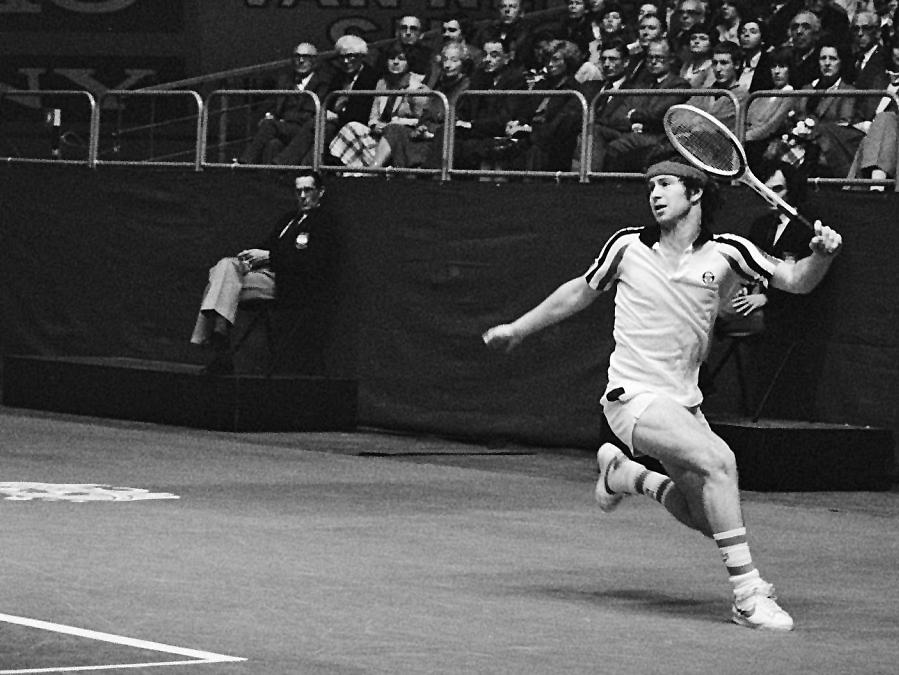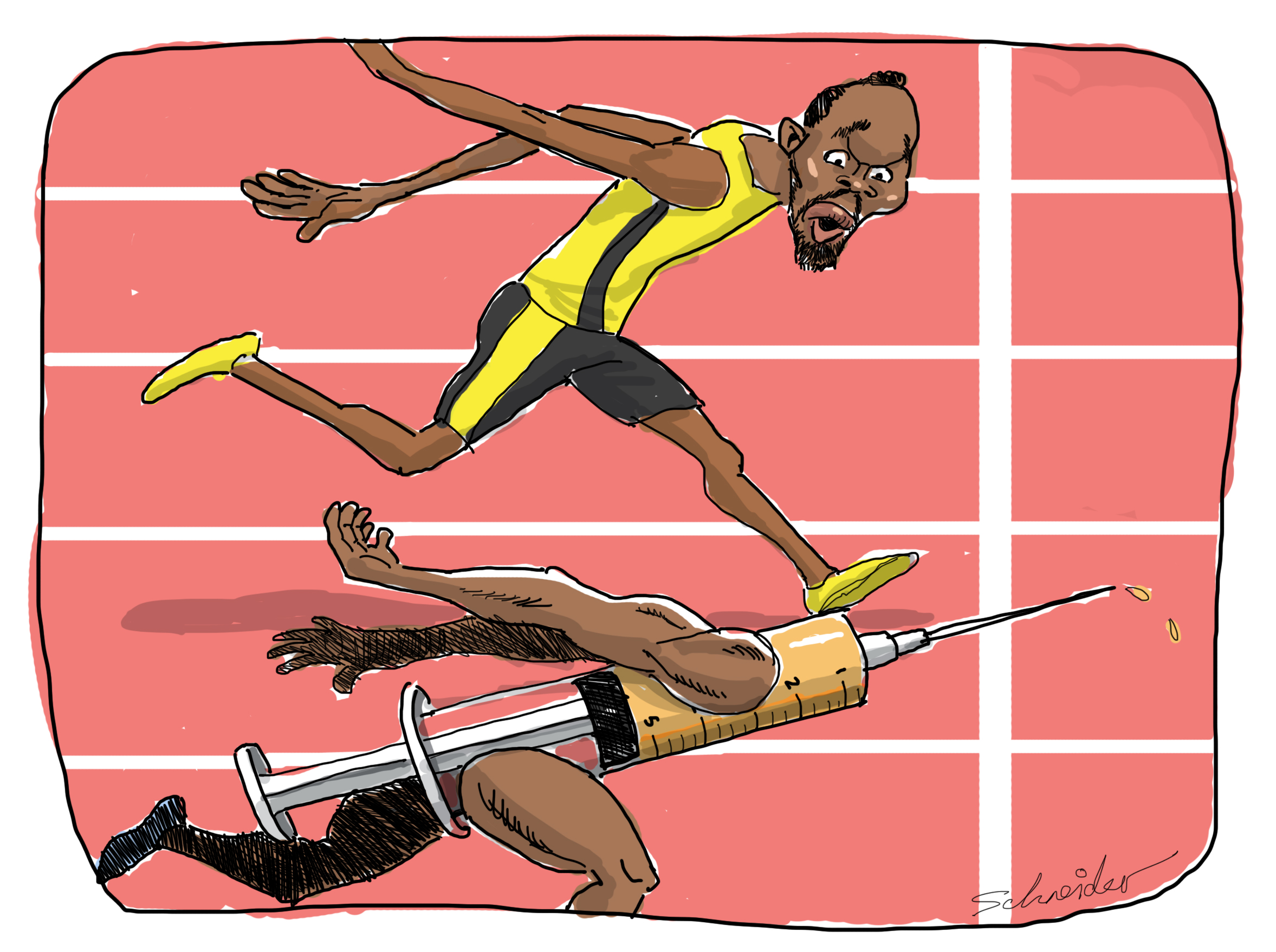HE WAS ONE of the greatest tennis players of his generation and also one of the most difficult characters to control. So, what was that all about? JOHN McENROE explains in a new autobiography, which RON REED has found to be a very good read:
JOHN McENROE does not forgive or forget, it seems. Not when it comes to the tennis officials with whom he simply couldn’t get along in the days when he was one of the most dominant players the game has ever produced, and not with the “bunch of stiffs” – his words – who used to run Wimbledon, the scene of some of his greatest triumphs. The Superbrat is 58 now and while he appears to have mellowed in many ways, his newly-published second autobiography, But Seriously, still has echoes of the wild old days and ways.
He admits he used to push the envelope to the limit where rules and umpires were concerned because it was one way to keep himself focused and, anyway, he knew he would always get away with it – until the day he didn’t and was thrown out of the 1990 Australian Open for audible obscenities during a match against Sweden’s Mikael Pernfors. “I knew the tournament directors never had the nerve to default one of their star players,” he writes. “They weren’t stupid. I wasn’t stupid either. I wanted to win and if I totally lost control I knew it would be tough to recover.
“In my early career, my problems with tennis officials were almost always to do with how bad I felt their decisions were. I’d always been brought up to tell the truth so when a mistake affected me I was going to say what I wanted to say, because why the hell should I let it go? The officiating standards in those days was often pathetically low. These people – who were all amateurs – made horrible mistakes.
“But that’s only human – anyone can do that. The worst part of it was the way they looked at anyone who dared to challenge them as if they were total lowlifes, almost smirking in their superiority. That was what drove me nuts – ‘Admit you’re wrong, man!’ That was the loudest and most oft-repeated mantra of the voice in my head. But they never did that.”
McEnroe claims that actually his first instinct often was to say something funny in response to a problematic situation on court, but he never did because it would have risked losing the intensity, the edge, he needed to stay competitive. So, he would sometimes get annoyed with players who did clown around. By the time he did start to lose control of what he said or did, “by then I was too big a draw for anyone to call me out on it. A few fines, a few penalty points, a few suspensions – on my terms, not theirs – but that was it. Until that day in Australia. Should the authorities have done more? Probably. But if I wasn’t willing to take responsibility for my increasingly wayward actions, why should I expect anyone else to do that for me?”
He says he is often asked how different the game would have been for him if the challenge system had existed. “Truth is, if I’d been able to challenge bad calls I probably would have been a 20 per cent better player but a 40 per cent more boring one because at the time I absolutely 100 per cent sincerely believed that these people – the umpires, the line judges – were screwing me. That was part of what gave me my edge.”
On Wimbledon, which he won in 1981, 1983 and 1984, he is disdainful. He tells how one year – he doesn’t say exactly when, but well after he retired – he caused a storm by crashing a meet-and-greet with Prince Charles and Camilla on the players’ balcony and asking her whether she had ever played tennis. Camilla replied: “Oh very badly … I would love to start again but maybe I’m too old.” As he had just come from the commentary box and presumably was miked-up, the conversation – “if you can even call it that,” he says – was broadcast. That was a breach of protocol but he didn’t know that and the tabloid press ripped into him.

“I’d say we were lucky not to have our membership of the All England Club taken away – if lucky is the right word,” he writes. “To be honest I don’t really care if I offended anyone. They’re not my royal family and I’m not sure how many people relate to these customs of deference anyway. Some of the so-called Wimbledon traditions I’m OK with, even though I remember the first few years I played there I thought they were a bunch of stiffs. I found England strange, full of quaint notions that I didn’t get.
“And Wimbledon was so full of itself in terms of how condescendingly it treated the lesser players, like they should be grateful to be even allowed into the grounds, never mind onto the court. As for all the bowing and curtsying – and we’re not just talking the Queen here, we’re talking some pretty minor royals – what was that all about? This was the class system gone mad, the opposite of a meritocracy where hard work is rewarded and people are respected because they’ve actually done something, not because they’ve been born on the right side of the tracks.” The royals, he says, should have been bowing to the players, not the other way around.
There is plenty more where all that is coming from 15 years after his first memoir, Serious, became an international best-seller. One minor irritation – and McEnroe admits it – is that he is a world-class name-dropper. “When I met Nelson Mandela, he said it was an honour to meet me,” he says modestly. But equally, the strength of the book is that he has an endless fund of anecdotes about what he has done and who he has done it with. A twice-married father of six, he is still a hugely prominent elder statesman in the game as an outspoken commentator, coach and seniors player, as well as an art collector, try-hard musician and businessman. With so much to work with and a fearlessly honest approach, it adds up to a very readable book.
BUT SERIOUSLY – JOHN McENROE WEIDENFIELD & NICHOLSON
RON REED has spent more than 50 years as a sportswriter or sports editor, mainly at The Herald and Herald Sun. He has covered just about every sport at local, national and international level, including multiple assignments at the Olympic and Commonwealth games, cricket tours, the Tour de France, America’s Cup yachting, tennis and golf majors and world title fights.



Discussion about this post